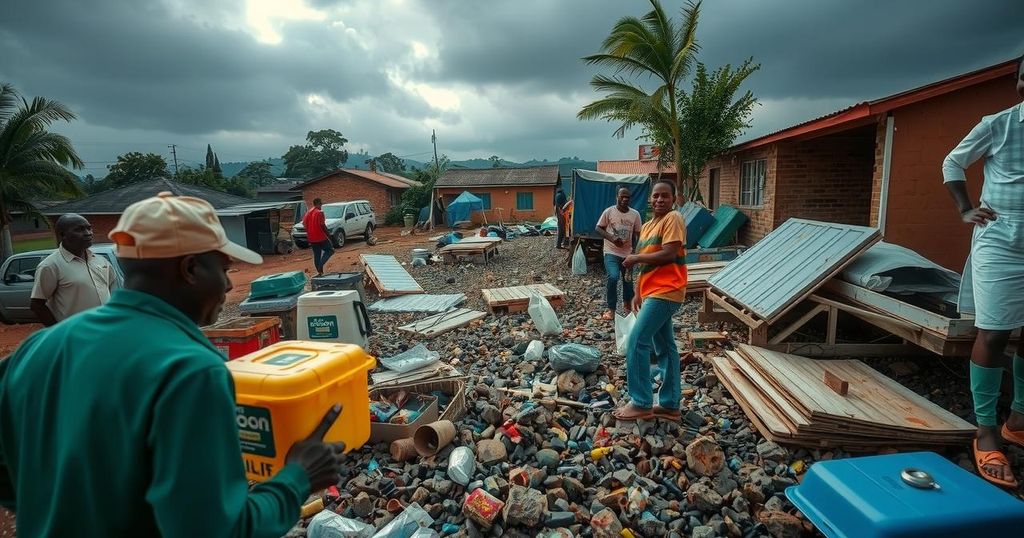Zimbabwe’s Journey of Recovery After Cyclone Idai: A Story of Resilience and Hope
Cyclone Idai devastated eastern Zimbabwe in March 2019, claiming lives and displacing thousands. CARE provided crucial aid to over 300,000 people affected, including Mwaedza, a survivor who found hope through a new shelter initiative. This transformation highlights ongoing issues of climate resilience and the need for continued support for vulnerable communities.
In March 2019, Cyclone Idai ravaged eastern Zimbabwe, resulting in the loss of over 340 lives and displacing nearly 60,000 individuals. The storm caused an estimated $622 million in damage, devastating infrastructure, properties, crops, and livestock. Amidst this tragedy, CARE has reached over 300,000 people with essential aid such as food, water, education, shelter, and drought-resistant seeds. Mwaedza, a 65-year-old survivor, recounts the horrifying night her village was destroyed. Forced to seek refuge at her uncle’s home after losing everything, Mwaedza describes the struggles of adjusting to life in a makeshift shelter, where fears of collapse loomed during each rainy season.
Despite her hardships, hope emerged when CARE initiated a shelter project in January 2024. Mwaedza’s life transformed as she was provided with a new, safe home, allowing her and her family to experience relief and security that they had longed for. Walter Mwasaa, CARE Zimbabwe Interim Country Director, emphasized the importance of improving national disaster preparedness and response strategies, particularly in shelter provision.
A recent partnership brought significant improvements, as community members engaged in designing housing prototypes for those in crisis. Mwaedza expressed her joy and newfound optimism, stating that the completion of her new home symbolizes resilience and hope for a stable future for her family.
While Mwaedza has renewed confidence in her ability to withstand the rainy season, many others continue to face vulnerabilities due to climate change. Mwasaa remarked on the ongoing need for support and action to assist families like Mwaedza’s in rebuilding from disasters. The story of Mwaedza reflects the indomitable human spirit and the significance of community support in overcoming adversity, showcasing that even in dire circumstances, hope and resilience can thrive.
Cyclone Idai struck Zimbabwe in March 2019, causing severe devastation and highlighting the country’s vulnerability to natural disasters. The cyclone inflicted extensive damage to infrastructure and displaced thousands, underscoring the critical necessity for effective disaster preparedness and response strategies. Organizations such as CARE have been pivotal in providing immediate relief to affected communities, focusing on shelter, food, and long-term recovery initiatives. The story of Mwaedza serves as a powerful testament to the struggles and resilience of those impacted, while also illuminating the larger issues surrounding climate change and housing safety in vulnerable regions.
The aftermath of Cyclone Idai in Zimbabwe underscores the profound impact of natural disasters on communities. Through the support of organizations like CARE, individuals such as Mwaedza have found renewed hope and safety in the face of adversity. While challenges remain for many still affected by climate change, the story of Mwaedza exemplifies the strength of resilience and the necessity for continued support and action. Ensuring adequate shelter and resources for disaster-prone areas is essential to foster recovery and stability for vulnerable families.
Original Source: www.care.org




Post Comment